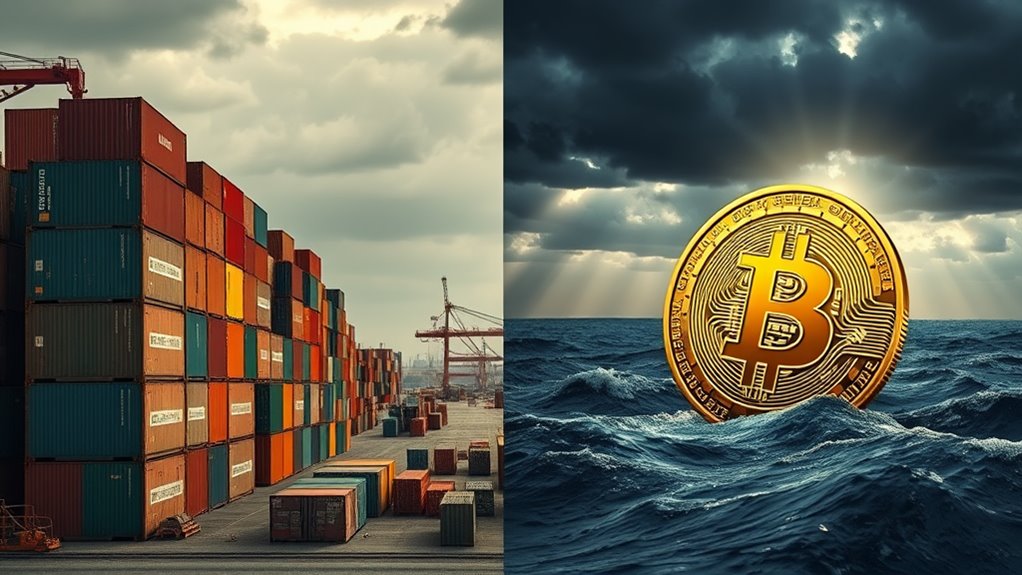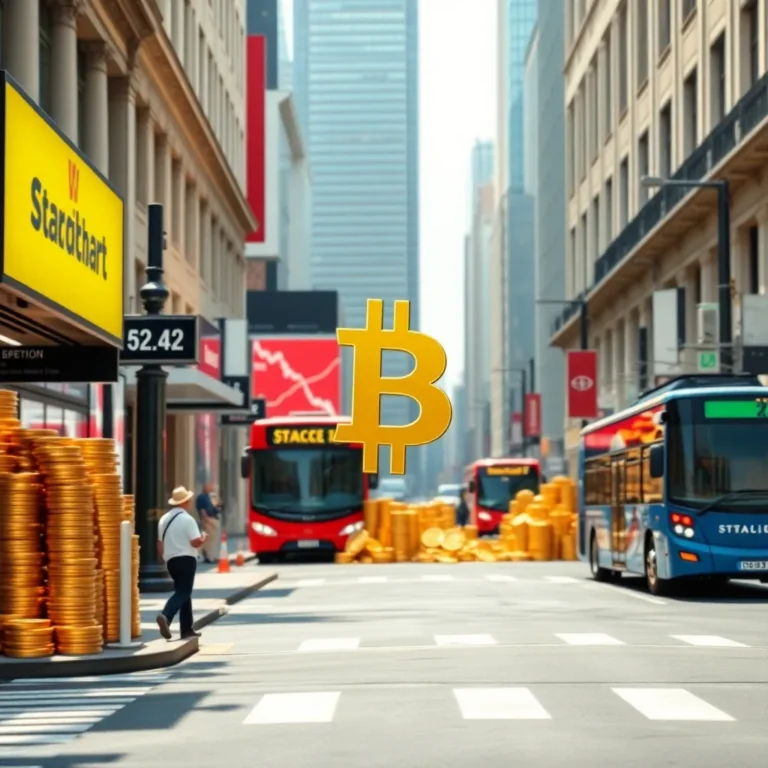Amid Global Tariff Wars, Does Bitcoin Actually Offer a Financial Sanctuary?
Note: This post may contain affiliate links, and we may earn a commission (with No additional cost for you) if you make a purchase via our link. See our disclosure for more info. The crypto world is constantly changing. This content is for informational purposes only and not financial, legal, or professional advice So, please verify the info on the cryptocurrency provider’s websites.
 bitcoin as financial refuge">
bitcoin as financial refuge">Amid escalating global trade tensions, Bitcoin stands resilient. The digital currency currently trades at $79,850, up 2.4% in 24 hours, while traditional markets falter. Not bad for an internet coin born during the last financial crisis. Despite experiencing a 19.1% pullback since January highs, Bitcoin has weathered the storm better than altcoins and many equities. Talk about staying power.
The global economy faces unprecedented pressure. The US slapped 10% blanket tariffs on imports, with higher rates for China (54%), EU (20%), and Vietnam (46%). Everyone's fighting back. China, Canada—over 50 countries now caught in this economic cage match. Supply chains? Disrupted. Consumer prices? Up. The global economy? Heading toward that dreaded stagflation scenario economists keep warning about.
Long-term Bitcoin holders aren't blinking. They're buying the dip. Classic move. This accumulation pattern suggests growing confidence in Bitcoin as a store of value—something that holds worth while everything else burns. Retail investors increasingly view it as an inflation hedge. Some traders are converting to USDC stablecoins during extreme volatility to preserve their capital while staying in the crypto ecosystem. Even institutions, traditionally skeptical of crypto, are showing interest amid the macroeconomic chaos.
Bitcoin isn't just surviving—it's thriving as smart money buys the fear and stacks sats while markets crumble.
Analysts are divided. Jeff Park believes trade war inflation will drive Bitcoin adoption. Ray Dalio sees tariffs reshaping the global monetary order entirely. Binance Research points to Bitcoin decoupling from risk assets during peak stress periods—exactly what a safe haven should do. The average US tariff rate has skyrocketed to nearly 19% from just 2.5% last year, creating economic conditions that could further test Bitcoin's safe-haven claims. Financial experts anticipate short-term pain in global markets as trade policies continue to disrupt international commerce.
But not everyone's convinced. The Kobeissi Letter reminds us that during recent market stress, Bitcoin dropped 10% while gold gained 10%. So much for digital gold, right? Bitcoin's performance increasingly resembles risk assets rather than traditional safe havens like precious metals or government bonds.
The verdict? Still out. Bitcoin shows promising signs of becoming a financial sanctuary during global turmoil. But it's young. Volatile. Unpredictable.
What's clear is this: as trade wars intensify and traditional markets wobble, Bitcoin offers something different. Not perfect protection, but an alternative worth watching. For now, that might be enough.











